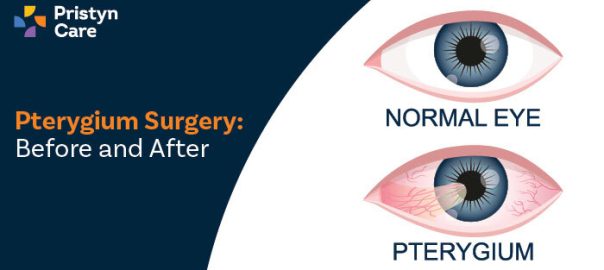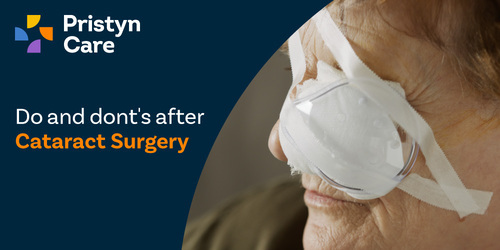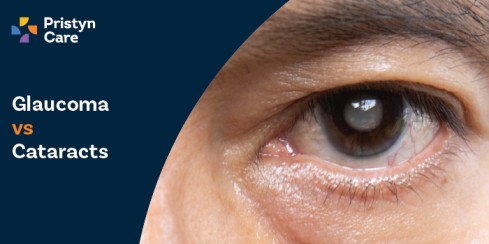![]() Views: 88
Views: 88
Dos & Don’ts After Cataract Surgery
Dedicated Support at Every Step!
Our Doctors are available 24 hours a day, 7 days a week to help you!
Call Us9513-316-643Undergoing cataract surgery is a significant step towards clearer vision. However, the journey doesn't end when you leave the operating room. The postoperative period is crucial for ensuring your eyes heal correctly and your vision improves as expected. This guide outlines essential do's and don'ts after cataract surgery, offering practical tips to help you navigate this recovery phase smoothly.
Whether it’s managing discomfort, protecting your new vision, or understanding when to seek help, adhering to these guidelines will maximise your recovery and enhance the success of your surgery. Let us explore these important steps together, ensuring your path to better sight is safe and effective.
Table of Contents
Overview of Cataract Surgery
Cataract surgery is a transformative procedure designed to restore clear vision by removing a clouded lens and replacing it with a synthetic one. Typically performed as an outpatient operation, this surgery is renowned for its safety and effectiveness. Most patients experience substantial improvements in vision, often noticing immediate changes in their visual clarity.
No Cost EMI, Hassle-free Insurance Approval
Importance of Post-Operative Care
The importance of post-operative care cannot be overstated. Following the surgery, meticulous care is essential to prevent complications and ensure optimal outcomes. Proper post-operative management facilitates a speedy recovery, helps stabilise the newly placed lens, and promotes its successful integration with the surrounding eye tissues.
By adhering to prescribed care guidelines, patients can significantly enhance their recovery process and overall results, ensuring the long-term success of the surgery.
Immediate Post-Surgery Care
The first hours after cataract surgery are pivotal for a successful recovery. Here’s what you need to know to navigate this critical time:
- Rest is Crucial: Immediately following surgery, it's essential to rest your eyes. Avoid strenuous activities and keep your head elevated with pillows to reduce swelling.
- Eye Protection: Your surgeon will provide you with a protective shield or eyeglasses to wear, especially during sleep, to prevent accidental rubbing or pressure on your eye.
- Manage Discomfort: Some discomfort or mild pain is normal. Typically, your doctor will prescribe pain relievers. It’s important to use them only as directed.
- Avoid Bright Lights: Your eye will be sensitive to light, so avoid bright environments by dimming lights at home and wearing sunglasses when outdoors.
- Limit Eye Strain: Refrain from activities that strain the eyes, such as reading, watching TV, or using electronic devices for long periods, for at least the first 24 hours.
- Eye Drops: You will be prescribed eye drops to prevent infection and reduce inflammation. Make sure to follow the exact instructions on when and how to use them.
- Handling Fluids: It's normal to experience some watering or discharge from your eye. Use a sterile tissue to gently dab away any fluids without touching the eye directly.
- Watch for Red Flags: Immediate signs that warrant a call to your doctor include intense pain, vision loss, or any signs of infection like increased redness or swelling.
By following these guidelines, you can help ensure a smooth initial recovery phase after cataract surgery.
Do's After Cataract Surgery
Post-operative care doesn’t stop after the first day; it extends for several weeks. Here’s how to ensure a smooth recovery:
- Adhere to Medication Schedules: It’s imperative to use all prescribed medications, such as antibiotic and anti-inflammatory eye drops, exactly as directed to avoid complications.
- Protect Your Eyes: Continue to wear protective eyewear to shield your eyes from dust, wind, and light. This protection is crucial when going outdoors.
- Attend Follow-up Visits: Post-operative appointments allow your doctor to monitor your recovery and catch any potential issues early. These check-ups are crucial for adjusting treatment plans if necessary.
- Gradually Resume Activities: Light walking can be resumed relatively quickly, but avoid more vigorous exercise for several weeks. Discuss with your doctor when it’s safe to resume activities like driving, sports, or heavy lifting.
- Manage Eye Hygiene: Keep your eye area clean and avoid rubbing or pressing on your eye. Use clean water and a mild soap to cleanse your face and avoid getting soap and water directly in your eye.
- Monitor Vision Changes: It’s normal for your vision to fluctuate during the healing process. Keep a log of any significant changes and discuss them during your follow-up appointments.
- Stay Hydrated and Maintain a Healthy Diet: Staying hydrated helps maintain moisture in the eyes, and a diet rich in vitamins and minerals supports healing.
By diligently following these do’s, you can help ensure that your recovery from cataract surgery is as smooth and successful as possible.
Don'ts After Cataract Surgery
Equally important to knowing what to do after cataract surgery is understanding what not to do:
- Avoid Water Activities: Keep your eye shielded from water to prevent bacterial exposure. This means no swimming pools, hot tubs, or even vigorous face washing for the initial weeks.
- Don’t Skip Medication: Missing doses of your prescribed medication can lead to complications, such as infection or delayed healing.
- Steer Clear of Dusty or Dirty Environments: Environments with high levels of dust, smoke, or chemicals can irritate your eye and compromise your recovery.
- Resist the Urge to Rub Your Eyes: Rubbing can dislodge the new lens implant or introduce germs.
- Avoid Heavy Lifting and High-Impact Activities: These can increase eye pressure, which can affect the surgical site.
- Ignore Signs of Complications: Always report pain, vision changes, or signs of infection to your doctor immediately.
- Self-Medicate or Use Unprescribed Eye Drops: Only use medications approved by your eye care provider.
Adhering to these don'ts will help prevent complications and ensure a smooth recovery from cataract surgery.
Long-Term Eye Care
After you’ve fully recovered from cataract surgery, maintaining eye health is a lifelong commitment. Here are strategies for long-term care:
- Regular Eye Exams: Schedule regular check-ups with your ophthalmologist to keep tabs on your eye health and catch any new issues early.
- Protect Against UV Light: Wear sunglasses with high UV protection to shield your eyes from harmful rays, which can lead to other eye conditions.
- Maintain a Nutritious Diet: Foods rich in antioxidants and vitamins, like leafy greens and fruits, support eye health.
- Stay Hydrated: Adequate fluid intake is essential for maintaining moisture in the eyes, especially important as you age.
- Manage Chronic Conditions: Conditions like diabetes or hypertension can affect your eyes. Manage them with the help of your healthcare provider.
- Adjust Your Home for Eye Safety: Ensure good lighting and reduce trip hazards to prevent falls and injuries that could harm your eyes.
These practices will help you maintain good eye health long after your recovery from cataract surgery.
Complications to Watch For
Cataract surgery is generally regarded as safe with a high success rate. However, like any surgical procedure, it is not without its potential complications, which can be both common and rare. Understanding these complications and recognizing the symptoms that require immediate medical attention is critical for ensuring a swift response and optimal outcomes.
Common Complications
Some patients might experience mild and transient issues such as slight swelling, redness, or discomfort. These symptoms typically resolve with minimal treatment. More persistent complications may include eye infections or increased intraocular pressure, both of which can usually be managed effectively with medication.
Rare Complications
Although less common, some serious complications may occur. One such complication is the dislocation of the intraocular lens implant, which can cause blurred vision and discomfort. Another rare but serious complication is endophthalmitis, a severe eye infection that can result in significant vision loss if not treated promptly.
Symptoms Requiring Immediate Medical Attention
Certain symptoms following cataract surgery should prompt an urgent consultation with a healthcare provider. These include severe eye pain that is not alleviated by over-the-counter pain relievers, any noticeable decrease in vision, or the appearance of flashing lights.
These symptoms could indicate severe complications such as retinal detachment or severe infection, requiring immediate treatment to prevent long-term damage.
Conclusion
Successfully navigating the recovery period after cataract surgery can significantly enhance the clarity of your vision and overall quality of life. By diligently following the do's and avoiding the don'ts, you empower yourself to not only heal effectively but also maintain optimal eye health long-term.
Remember, the journey to better sight involves more than just the surgical procedure; it requires careful attention during the recovery phase and beyond.
Trust the process, adhere to your doctor's advice, and keep a vigilant eye on any changes. Your path to a clearer vision is well paved with the right practices and expert guidance from your healthcare provider.









